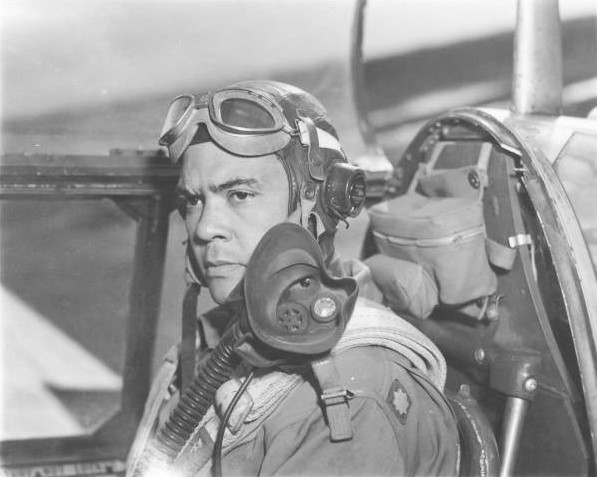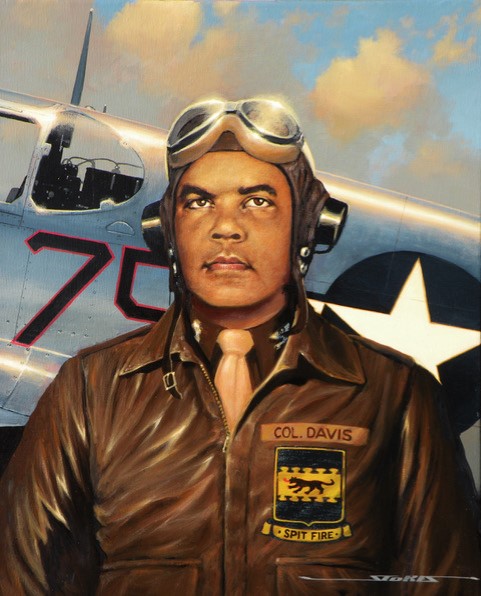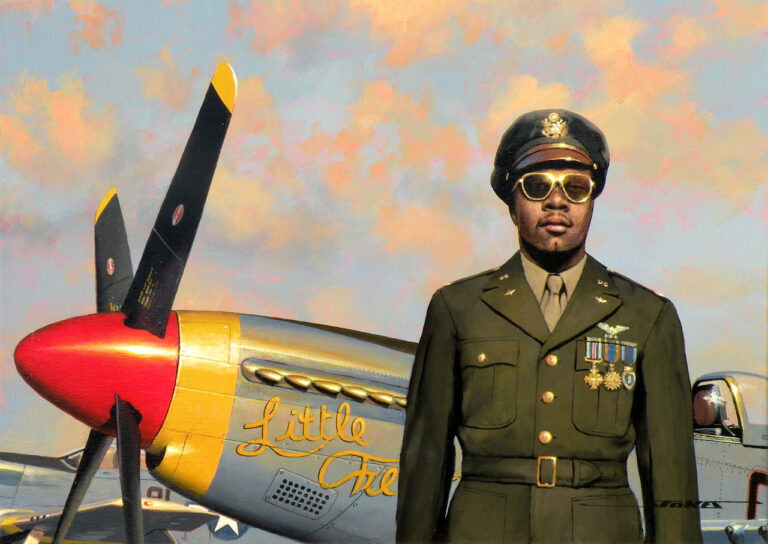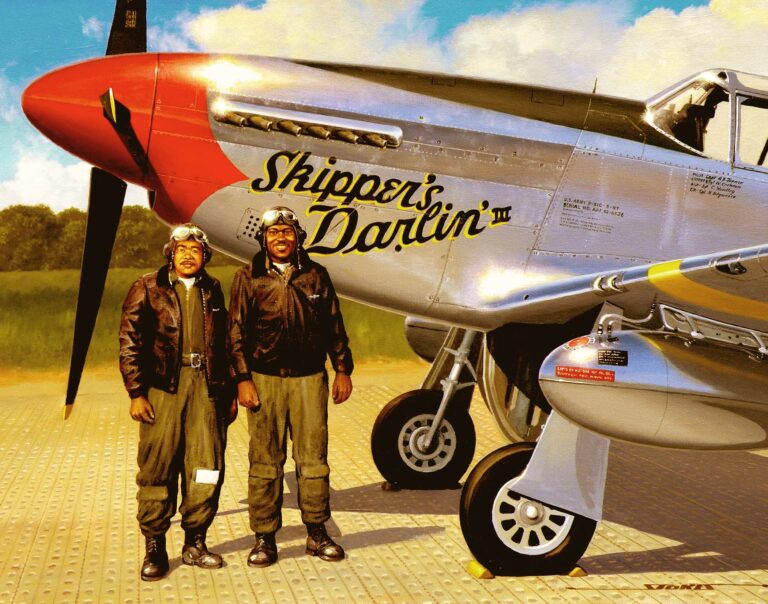In July 1941, Davis entered aviation cadet training with the Tuskegee Airmen’s first class of aviation cadets, Class 42-C-SE. On March 6, 1942, Davis graduated from aviation cadet training with Captain George S. Roberts, 2nd Lt. Charles DeBow Jr., 2nd Lt. Mac Ross, and 2nd Lt. Lemuel R. Custis. Davis and his four classmates became the first African-American combat fighter pilots in the U.S. military.
Davis was the first African-American officer to solo an Army Air Corps aircraft.
In July 1942, having been promoted to lieutenant colonel, he was named commander of the first all-black air unit, the 99th Pursuit Squadron. The squadron, equipped with Curtiss P-40 Warhawks, was sent to Tunisia in North Africa in the spring of 1943. On June 2, they saw combat for the first time in a dive-bombing mission against the German-held island of Pantelleria. The squadron later supported the Allied invasion of Sicily.
In September 1943, Davis was deployed to the United States to take command of the 332nd Fighter Group, a larger all-black unit preparing to go overseas.
Colonel Davis and his 332nd Fighter Group arrived in Italy soon after that. The four-squadron group, called the Red Tails for the distinctive markings of its planes, were based at Ramitelli Airfield and flew many missions deep into German territory. By the summer of 1944, the group had transitioned to P-47 Thunderbolts, and about two months later, they transitioned into P-51 Mustangs.
Davis led 67 missions in P-47s and P-51 Mustangs. He received the Silver Star for a strafing run into Austria, as well as the Distinguished Flying Cross for a bomber-escort mission to Munich on June 9, 1944.





